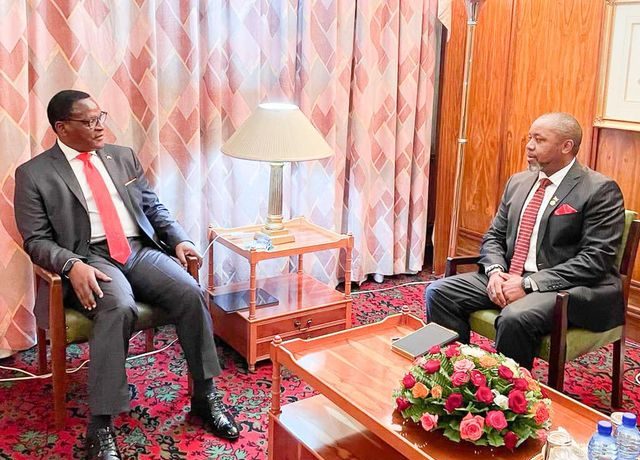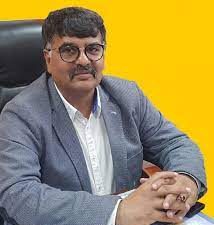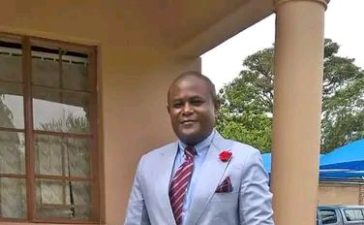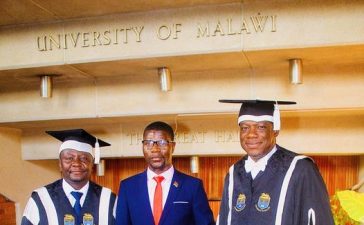By Mcford Sempulo (Legal scholar UNIMA)
A stitch in time saves nine! But does that not depend on the availability of the stitch? Probably yes.
Our political and legal landscape is one of the most fragile ones in Southern Africa. There is a lot of hide and seek. Be that as it may, there is common census that the two are a syntactic unit which inform each other. Politics ushers constitutional and legislative arms of Government the validity of which proceeds from the constitutional dictates. Under section 40 of the Constitution political rights which include the right to stand for an election are conferred.
The foregoing however is a limited right in a democratic and open society pursuant to section 44 of the Constitution. This limitation is applicable to the office of the President. In terms of section 83 (3) of the same Constitution, a person who has served in such office for two consecutive terms is debarred from standing as a presidential candidate beyond those terms. The effect is that once you serve 10 years, your presidential candidacy clock is up.
There have been bickering and conflictual dispositions on the interpretation of this provision-a battle which has convocated the minds of both legal minds and common citizens.
The inferno that has tindered this development is the interpretation of the same provision by the High Court in the Muluzi third Term case (2009) which held that the target of that provision encompasses both the president, the vice president and the 2nd Vice President.
This decision represents the current judicial interpretation of the provision and should be treated as such unless and/or until there is a pronouncement on the same by the Supreme Court of Malawi overruling this position. Alternative to that, the High Court may also be seized with the matter to proffer clarity or restate the interpretation of the contested provision.
Who cares then? Not only the Chilima’s camp but also Malawians some of whom have been heavily imbued in the subsistence of this debate. In simple tautology, Vice President Saulosi Klaus Chilima will be ineligible to stand as a presidential candidate whether under the TONSE Alliance or under the flagship of UTM in 2025. He saved the first term as vice president under Peter Mutharika before assuming the same position under the Lazarus Chakwera reign. This follows that his two terms will have expired, done and dusted.
I am talking of a man who have the back and aura of some Malawians who helped the TONSE Alliance disgorge DPP from government in the courts sanctioned elections in 2020. Him and his camp may still harbour intentions of competing for the hot seat next year. Why not? Its a political right that ought to be protected enforced and realized if it is to maintain its substance.
It is my contestation that in as much as the political plane is hovering in a deliberate nebula on this issue, it is an issue which ought to be clarified not only for the sake of Chilima, but for the sake of Malawi’s political future, landscape and the attendant human rights of Malawians. This Imbroglio doesn’t fall squarely as a political chimera only but it also touches on the issue of constitutionalism and human rights.
There may be other legal alternatives that may help in recuperating this political and constitutional issue of interest, but I would like to shake a solution from the Presidential crucible itself.
My attention is poised on section 89 which enacted the powers and duties of the President. Among others, the President is obligated and or empowered to refer disputes of a constitutional nature to the High Court. The word dispute is one of broad canopy which may arguably cover the disagreements the uncertain views and schisms on the interpretation of section 83(3). At dispute too is whether Chilima’s political right concerned will have been impinged should it be interpreted that he is eligible to stand in the forthcoming elections where such an interpretation tarries making it impractical for him to do so. At dispute is also the certainty of the relevant right with regard people who may find themselves in the same position in future.
This justifies calls and resolves that the President invoke his constitutionally vested duties or powers to catalyse for clarity on this issue. There is great need for the High Court, and or where involved, the Supreme court to give an unequivocal and harmonious position and restatement of the correct of the contested provision. In Hohfeldian sense rather, the import of the word duty extrapolates the language of a correlative right. This implies that the President is bound to refer disputes of such nature which are so notorious nationally and concern the tenets of the Constitution to the relevant domain of the judicature for interpretation or restatement.
It is axiomatically clear to me that the President is aware of these Constitutional contretemps. The tricky part however is the power language alternating the duty code that inform the letter of section 83. The term power envisages discretion. If this is to mean that the President has power with regards that provision, then we can expect action or slumber, whichever the President may deem fit.
The above said, however, we are not robbed of the constitutional social-trust governance safeguards envisaged on section 12 which, to my belief the President is well-versed with. It is up to the President to defend and preserve the dictates and obligations required of him , an oath He made pursuant to section 81 of the Constitution, or to hum the ‘I don’t care’ slogan and abet in one of the prevailing legal and political firmament. Cedit Quaestio!












